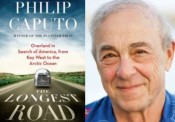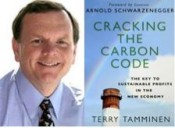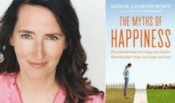Free Forum Q&A – JACOB KORNBLUTH: director of INEQUALITY FOR ALL w/ Robert Reich & HARVEY WASSERMAN: Update on Fukushima Nuclear Power Plant
Written on October 1st, 2013 |
Aired 09/29/13
A new documentary film opened Friday 9/27 in 23 cities, including Los Angeles, starring former Labor Secretary in the Clinton Administration, Berkeley professor, best-selling author, and frequent guest on this program, Robert Reich. Titled INEQUALITY FOR ALL, can it do for this “inconvenient truth” what the original did for climate change? My first guest this week will be the film’s director JACOB KORNBLUTH.
Early reviews are positive. It’s got a Rotten Tomatoes score of 93%. Here’s Ken Turan in the LA TIMES: Smart, funny and articulate, Robert Reich is the university professor we all wish we’d had. He’s so accessible and entertaining he takes a subject that sounds soporific and makes it come alive like you wouldn’t believe.
Here’s just a few numbers to remind you how crazy things have gotten:
* In 1978, a typical male worker made $48K, a typical member of the top 1% $393K. In 2010, a typical male worker made $34K – a drop of 30%, while a typical member of the top 1% made $1,101K a gain of 180%.
* In 2013, the richest 400 Americans have more wealth than the bottom 150M.
* And as remarkable as those numbers are, I think the most important number in the film is this one: Consumer spending = 70% of the US economy. (i.e., Middle class = job creators).
The last quarter of the show, we’ll get an important update on the stricken Fukushima nuclear power plant from HARVEY WASSERMAN.
Free Forum Q&A- Philip Caputo, Author of The Longest Road: Overland from Key West to the Arctic Ocean in Search of What Holds America Together
Written on September 24th, 2013 |
Aired: 09/22/13
Standing on an island off the Alaskan coast, PHILIP CAPUTO marveled that Inupiat Eskimo schoolchildren pledge allegiance to the same flag as the children of Cuban immigrants in Key West, six thousand miles away. And a question began to take shape: How does the United States, peopled by every race on earth, remain united?
CAPUTO resolved to drive from the nation’s southernmost point to the northernmost point reachable by road, talking to everyday Americans about their lives.
Fourteen years later, nearing 70, CAPUTO, his wife, and their two dogs drove a truck and an Airstream trailer from Key West, Florida, to Deadhorse, Alaska, covering 16,000 miles. They avoided interstates, and invited conversations with Americans you meet when you avoid interstates. Somewhere in many of those conversations, Caputo would ask two questions: What holds a country as vast and diverse as the United States together? Was it holding together as well as it once did?
Free Forum Q&A: APRIL RINNE Chief Strategy Officer, Collaborative Lab
Written on September 17th, 2013 |
Aired: 09/15/13
Are you doing more sharing these days? In a virtual sense, most of us would probably answer yes. Sharing political petitions, photos shot with our mobile phones, and of course, cute cat stuff. But what about sharing in the real world – are you doing more of that? Well, as a society the answer again is yes. Whether bike sharing, which is rolling out in 500 cities, car-sharing, even Hertz is getting into the game, or apartment sharing through services like AirB&B.
Habits and practices of simpler times like swapping, trading, renting, and sharing, have been reinvented through real-time technologies and peer-to-peer networks to make sharing more efficient and affordable than buying new things.
null
According to the Economist, “Occasional renting is cheaper than buying something outright or renting from a traditional provider such as a hotel or car-rental firm. The internet makes it cheaper and easier than ever to aggregate supply and demand. Smartphones with maps and satellite positioning can find a nearby room to rent or car to borrow. Online social networks and recommendation systems help establish trust; internet payment systems can handle the billing.”
Whether driven by economic hard times or technological innovation, something’s going on here and I’ll be talking about it for the next hour with April Rinne, Chief Strategy Officer of the Collaborative Lab.
www.cclab.
Free Forum Q&A – TERRY TAMMINEN, frmr Secy Cal EPA CRACKING the CARBON CODE Sustainable Profits in the New Economy
Written on September 4th, 2013 |
Aired 09/02/12
When I first met TERRY TAMMINEN, he was living on a houseboat in the Marina and filling a position he’d founded as the first Santa Monica Baykeeper. No too long before that, he had been running a pool services company. And not too long after, he was Secretary of the California EPA.
Tamminen has reinvented himself successfully in several very different worlds — business, government, non-profit, foundation, from the grassroots to the halls of power. All of this for a long time now to achieve a sound and healthy relationship between society and the environment. He pursues that consistent vision with whatever works.
We’ll talk about the ideas in his book, CRACKING THE CARBON CODE: The Key to Sustainable Profits in the New Economy – which is very much a plan of action for companies who figure out that reducing carbon emissions reduces waste and is therefore good for the bottom line. He’ll tell stories of companies that have made or saved money by cutting carbon.
How has he been able to move things forward through politics and government in an era when so little seems to get done? Bottom line, are we moving fast enough? If not, how do we integrate all these different players to accelerate movement in the right direction?
Free Forum Q&A – SONJA LYUBOMIRSKY The Myths of Happiness: What Should Make You Happy, but Doesn’t, What Shouldn’t Make You Happy, but Does
Written on August 13th, 2013 |
Aired: 08/11/13
This week we’re going to talk about happiness. So let’s start with a true-false test. I’ll tell you a supposed fact about happiness, and you decide whether you think it’s true or false.
1. Unexpected pleasures are the most rewarding. True or false?
2. Novelty in a relationship has similar effects on our brain as a high from drugs. True or false?
3. Daily hassles impact our well-being more than major life events. True or false?
4. When it comes to sex, women require more novelty than men. True or false?
5. The genes that underlie who gets divorced are passed down from parents to children. True or false?
6. A smoking habit is not a bigger risk factor for heart disease as a troubled marriage. True or false?
7. Renters are happier than homeowners. True or false?
Okay, let’s see how you did…It turns out, according to today’s guest, all seven statements are true. Yup, renters are happier and women want more novelty in sex than men. Where do I get off making those assertions? All based in science.
Today’s guest, SONJA LYUBOMIRSKY, Professor of Psychology at the University of California, Riverside, is one of the nation’s top students of happiness, and we’re going to talk today about the findings in her new book, THE MYTHS OF HAPPINESS: What Should Make You Happy, but Doesn’t; What Shouldn’t Make You Happy, but Does.
Originally from Russia, SONJA LYUBOMIRSKY received her A.B., summa cum laude, from Harvard University and her Ph.D. in Social/Personality Psychology from Stanford University. Not too shabby. Her research has been awarded a Templeton Positive Psychology Prize, a Science of Generosity grant, a John Templeton Foundation grant, and a million-dollar grant from the National Institute of Mental Health to conduct research on the possibility of permanently increasing happiness. She is author of The How of Happiness, translated and published in 19 countries, and her newest, THE MYTHS OF HAPPINESS.
